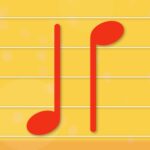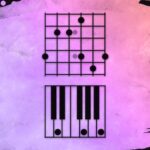Build Your Skills
Learn music theory Train your ears Track your tempoRead Now
Get the Newsletter
Categories
- | BeatMirror (10)
- | HearEQ (11)
- | Waay (22)
- | WaayFinder (1)
- Audio (16)
- For musicians (34)
- Guitar (2)
- Music theory (15)
- News (42)
- Startup stories (2)
- Tutorial (4)
Keep in Touch
About Ten Kettles
We love music, we love learning, and we love building brand new things. We are Ten Kettles.
Read more >-
February 28, 2023
A Better Question to Ask
Is it easy? Is it difficult? These questions have always rankled me a bit. What do they really mean? And more importantly, is there a more useful question to ask?
Difficult
Let’s bring this to music theory. Take a look at this question:
What other chords share a key with C Em F?
Is it difficult? Well, if you know your “magic chord formula” (see Waay for this) and have built out some skills around it, then it should be quick to answer (Dm G Am B°). But if you’re new to music theory, then you won’t have much luck getting to the answer on your own.
Does that make it an easy or hard question? I don’t think there is an answer. The question can’t really be judged on its own; it’s usefulness depends entirely on where you are in your learning—and how it can help.
Ease
The same goes for “Is it easy?” Let’s see another question.
What is one letter name above G?
Is it easy? Well, to answer it correctly you’ll need to know the musical alphabet: A, B, C, D, E, F, G (and then it starts again at A). Knowing that, you could likely answer correctly that the letter name above G is A.
If you’re new to music, that’s a really useful question to answer. And after you’ve answered it a few times, maybe in a few different contexts, it’ll start to feel pretty intuitive. And then you’ll be like the bulk of other people who might call this an “easy question.” So easy that it might not be useful anymore.
Through it all, the question hasn’t changed but its usefulness has. Because you have.
“He knows how to teach. (⭐️⭐️⭐️⭐️⭐️). Among the hundreds of apps in the store Waay stands out due to simplicity of design and its ability to teach music theory. Learning to play an instrument is one thing but without a solid base it won’t last long like many other hobbies. I write reviews very rarely but this app made me do so! Thanks for the great app and please keep up the good work! Worth every single penny!”
–Waay user, Feb. 4, 2023
Usefulness
I believe it’s important, whether we’re talking about learning music theory or developing other skills (like running or parenting), to reframe these questions.
Instead of asking “is it easy?” or “is it difficult?” what we could ask is this: “is it useful?” Because we’re not just doing exercises to do exercises. There’s a goal in mind, and the exercises should be in service of that. Talking too much about “easy” and “difficult” can make us forget that goal.
When we ask “is it useful?” we can then expect a spectrum of answers:
- No, not useful anymore. Some exercises are a useful stepping stone when we’re first learning, but no longer have value.
- Yes, useful for review. Other exercises are completed easily, but have value in revisiting.
- Yes, useful for growth. Challenging exercises have enormous value, as long as they are (with some work) within reach.
- No, not useful yet. Like our first example above, some exercises can be deeply useful to practice, but aren’t helpful at our current stage of learning. We need to build out some other skills first.
Wrapping up
As we pick new exercises (or songs) to learn on our instrument, I’d suggest adding “Is it useful?” to our usual “Is it easy/difficult?” question before diving in. As you develop your skills, in music and in life, remember that exercises are there to serve you and your goals. Some should take more work and some should take less. Some should be skipped, and some should wait till you’re ready. But as long as you keep asking yourself “Is it useful?” then you’ll likely be on the right track.



Comments